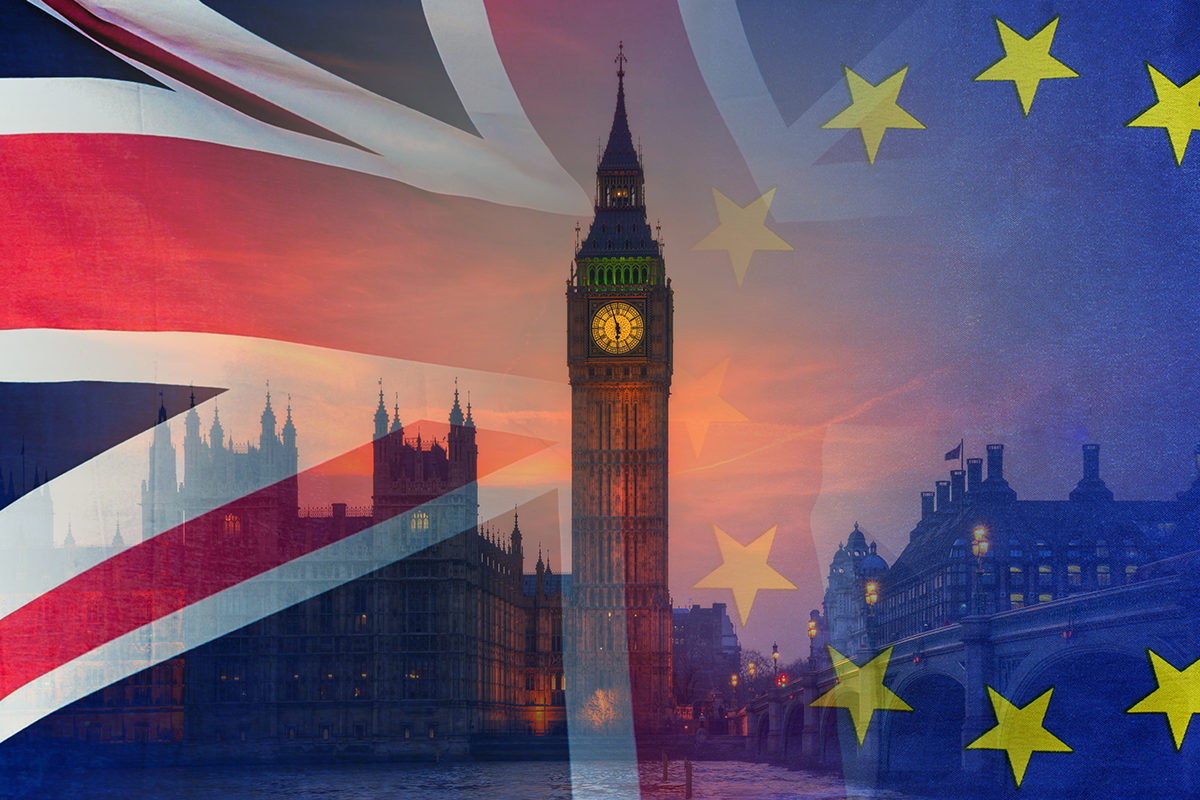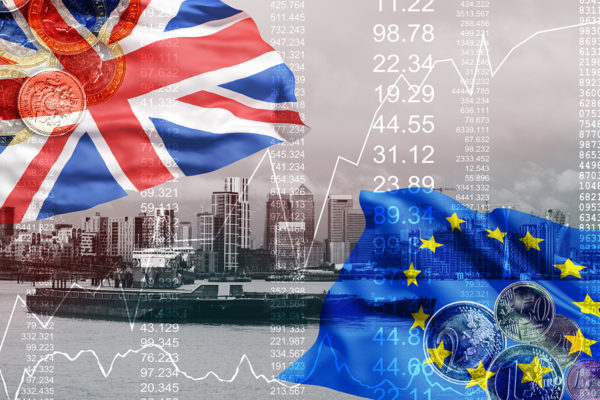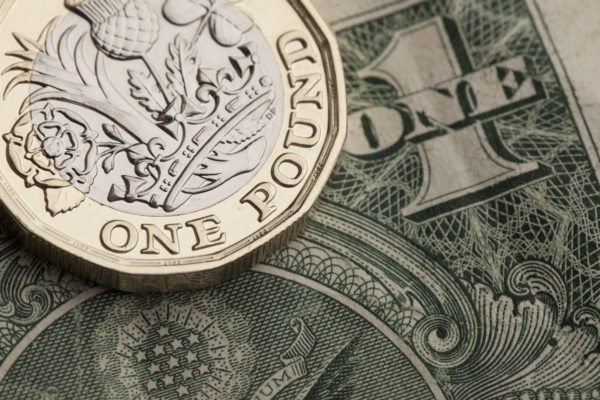Back to Brexit
by Steve Lewit

The Abbreviation That Won’t Go Away
Brexit! It stands for British Exit from the European Union (EU) which is due to happen on October 31, 2019. Well, it’s really been back in the news lately. But why, and what’s the big deal?
As you know, I am an economist, so Brexit has particular intrigue to me. But, more importantly, as a financial planner, I believe it holds significant weight and importance in how it may impact the stock market, and, as a result, your retirement planning.
Additionally, at our recent mid-year Economic Update events (thank you to all who attended—we had a terrific turnout!), it was one of the most asked about topics. So here is the new, updated scoop.
Brexit is result of a public referendum held in June 2016, as to whether the UK should stay or leave the EU. Leaving won by a vote of 52% to 48%. Since that time, what Brexit means, how it will work, and the impact on the UK, the US and the world economy, remains a controversial, highly contested debate. In other words, despite an agreement between the UK and the EU, Members of Parliament are unwilling to agree and approve the deal which means, of course, that there is no deal. A big problem!
The Big Hang-Up

The big hang-up is something called the Backstop. Currently, there are no border posts, physical barriers, or checks on people or goods crossing the border between Northern Ireland and the Republic of Ireland. The Backstop is designed to ensure that continues after the UK leaves the EU and there is no comprehensive free-trade deal agreed on between the UK and the EU. Effectively, it would keep the UK inside the EU’s customs union, but with Northern Ireland also conforming to some rules of the single market. One side argues that the Backstop, as it changes the status of Northern Ireland, could threaten the existence of the UK and could become permanent. But supporters say it is necessary to maintain peace in Northern Ireland.
Now, if you don’t understand all of that, you are one of millions that don’t get it. But, what everyone gets, is the EU won’t budge on the Backstop and Prime Minister Johnson’s alternative to use technology is going nowhere. That leaves the UK leaving the EU without a deal on October 31. Meaning that the UK will leave the customs union (which assures that all EU countries charge the same taxes on goods coming from the outside and don’t charge taxes on each other’s goods) and the single market (which enables goods, services, people, and money to move between all 28 EU member states, as well as Iceland, Norway, Liechtenstein, and Switzerland, who are members of the European Economic Area. Countries in the single market apply many common rules and standards) overnight. Then the EU will start carrying out checks on British goods that could lead to delays at ports, supply line bottleneck, and severe damage to the economy.
The Politics

British lawmakers voted 328 to 301 on Tuesday (9/3/2019), for a motion to allow another vote, as early as Wednesday (9/4/2019), on whether to force Johnson to request a three-month Brexit extension if there’s no agreement in place by October 31. Johnson threatened to pursue a snap general election, but he requires a two-thirds majority in the House of Commons to call one.
“Boris Johnson is going to call for a snap election and the chances are that he will lose,” Naeem Aslam, chief market analyst at TF Global Markets UK, said in a morning note. “The fact is that no one wants to have no-deal Brexit, this is not what Brexiteers signed up for, and Boris Johnson is wrong in thinking that he is going to deliver Brexit no matter what the cost is.”
The political entanglements are substantial with a number of different factions advocating their own point of view. Now, the badly divided government remains in crisis, unable to agree on an approach to the country’s biggest peacetime decision in decades. In fact, Prime Minister Theresa May paid for the struggles with her job, announcing on May 24 that she would resign after failing to come up with a plan that satisfied her party, her coalition partners and officials in Brussels.
On July 23, the Conservative Party chose Boris Johnson, a brash proponent of withdrawal, to succeed her and take control of the Brexit process. Since then, his policies have failed—as did May’s. In late August, Mr. Johnson, who has promised that he can hammer out a new agreement by the October deadline, shortened the time Parliament has left to debate, potentially increasing the chances of a no-deal Brexit. This move threatened to test the country’s political system and was denounced as a “constitutional outrage” by John Bercow, the speaker of the House of Commons. In other words, the feeling among many is that Johnson suspended the democratic process in the UK. In other words, what a mess!
Brexit and the Economy
If you recall your world history, the UK has always been a trading nation. The total trade between the UK and the US is close to $110 billion. That is nowhere near as significant as the $635 billion of trade with China, but still important. Even more significant is the fact that trade between the UK and the EU in 2017 was around $615 billion. That is the number that will be hit hardest after Brexit, and the consequences will be felt across Europe. That matters to you because the US total trade with the EU is even more than with China, at just under $718 billion.
Add to that is the fact that London has historically been one of the major financial centers of the world. In some areas—insurance for example—the London markets are often even more important than their US counterparts. If Brexit does cause as major of a disruption to the UK economy as most seem to be convinced it will, the ripple effect from the weakening of the financial system will be felt far and wide.
How Will a No-Deal Brexit Affect the Stock Market?

Many business leaders dread a “no deal” cliff-edge scenario for the UK. Meaning that the country abruptly leaves with no transition period in place which would not allow businesses to adjust to life outside the EU. Abrupt move in any economy is cause for concern. The questions are: How poorly will the UK economy fair? How will it impact other countries? And, will the US stock market react negatively?
Interestingly enough, the Fed has explicitly mentioned Brexit uncertainty as one potential factor weighing on the US outlook. It’s certainly possible that a no deal Brexit could cause a period of volatility in global financial markets which, if sustained, might weigh on US growth and, consequently, the US stock market. If you recall, when the referendum to leave the EU was passed in 2016, there was plenty of market volatility. But, things calmed down pretty quickly afterwards.
Many market experts suspect that the same would happen this time around. In 2016, the Dow Jones industrial average dropped 5% – 6% in June, and many economists thought that Brexit could slow the US economy by as much as 0.5%, damaging the US economy. Rocky times on Wall Street though ended fairly soon. As a result, 401(k) investors who held on enjoyed breaking one record after another for the Dow Jones industrial average.
Having said all that, in the past, problems in some Asian countries, Argentina, and Russia, have all prompted a reaction in U.S. stocks. It would probably be naïve to believe that a hit to the UK and EU economies would somehow be contained to Europe and Asia and would underestimate the possibility that it will have a major influence on the US. Eventually, when the Brexit chicken comes home to roost, the impact on the US could be much worse than US investors seem to currently realize. The reality is that no one knows just how Brexit will impact the US, the UK, and the world’s economic future. Better to prepare for the worst than be surprised by it.
Brexit and Your Wallet

When trade shifts and changes, so does the value of money. Since the Brexit drama began, the US dollar has become stronger when compared to the pound. In other words, it takes fewer dollars to buy a UK pound or, the other way around, it would take more pounds to buy a US dollar. That means, for example, you may spend less on your next vacation to the UK because your money goes further.
However, if you own a company that relies on exporting to the UK, you could take a financial hit. A weaker pound means US products are more expensive for consumers in the UK—which can cause sales to drop. A lot of US businesses also use the UK as a mutual friend for trade with the EU. Without that connection, global trade gets even more complicated. Not exactly what anyone needs right now.
Conclusion
You may feel that Brexit news is equivalent to the uncle you don’t like, that you invited to dinner, but doesn’t want to leave. That makes things pretty confusing and testy. This is the time to tune out all the noise, stay the course of your financial plan, and remember that your investments in the market should be long-term so you can weather market ups and downs. Finally, if you’re planning a trip, perhaps Big Ben should top your destination list.
If you’d like to talk to SGL Financial about your retirement planning, give us a call at 847-499-3330 to schedule your complimentary financial review.
Or, click here to fill out our online contact form right now.
We’re a Fiduciary, we’re independent, and we’ve helped hundreds of retirees just like you to create a secure retirement plan and enjoy their golden retirement years.
